Long-time AT&T General Counsel Wayne Watts took then-Haynes and Boone partner David McAtee to lunch at the Crescent Club in 2011. McAtee started asking Watts how things were going.
“David, I didn’t invite you to lunch for your sparking personality,” Watts told McAtee. “I’m creating a new position to integrate the litigation team,” which was at the time split up under various subsidiaries.
“The problem,” Watts told McAtee, “is that there isn’t one throat for me to choke. There’s no one person to hold responsible.”
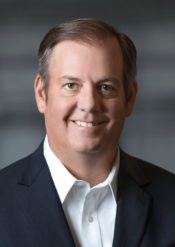
“I’m not sure he ever actually offered me the job,” McAtee said in an interview with The Texas Lawbook in 2015. “He just made it known that it was me.”
Watts retired that year and McAtee is now AT&T’s chief legal officer. And Watts must be very pleased with his handpicked choice.
In 2018, AT&T’s legal department won two monumental courtroom victories against the almighty United States government:
• In August, a federal judge in California rejected claims by the Federal Trade Commission that AT&T subsidiary DIRECTV had violated false advertising laws and should pay $4 billion in damages; and
• In June, a federal judge in Washington, D.C., issued a landmark ruling that AT&T’s $85 billion acquisition of Time Warner Inc. did not violate federal antitrust laws, as the U.S. Department of Justice alleged.
AT&T lawyers – both in-house counsel and their outside attorneys – declined to discuss either case. The false advertising case ended in the lower court, but the anti-trust case is on appeal.
But legal experts say that either litigation victory would be considered the biggest and most important of any lawyer’s career. The fact that they came just three months apart is an extraordinary statement about the legal teams McAtee put together.
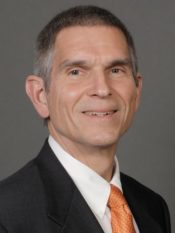
“McAtee is today’s version of General Patton,” says former American Airlines General Counsel Gary Kennedy. “Coordinating such a massive antitrust lawsuit with the government was a legal battlefield that demanded nothing short of top-notch leadership, management and diplomatic skills.”
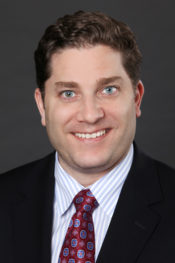
At the same time, AT&T’s legal department – which numbers about 900 in-house lawyers worldwide – has developed best-in-class pro bono and diversity-inclusion programs.
Based on these accomplishments, the Association of Corporate Counsel’s DFW Chapter and The Texas Lawbook have named AT&T and several of its lawyers as finalists for three different honors in the 2018 Outstanding Corporate Counsel of the Year awards.
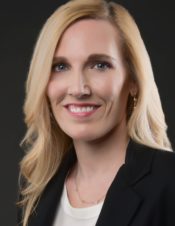
The three categories for which AT&T lawyers are finalists are:
• Business Litigation of the Year, which recognizes a slew of AT&T in-house counsel (McAtee, Assistant General Counsel Bill Drexel, Assistant General Counsel James Meza and Senior Legal Counsel and appellate law expert Heather New) and AT&T’s lead outside counsel from Gibson, Dunn & Crutcher (Rob Walters, Mike Raiff and Sean Royall), Jeff Tillotson and Reese Marketos partner Pete Marketos;
• Senior Counsel of the Year for a Large Legal Department, which recognizes Assistant General Counsel Bill Drexel, Assistant General Counsel James Meza and Senior Legal Counsel and appellate law expert Heather New for their leading roles in the antitrust and false advertising cases; and
• Diversity of the Year, which recognizes AT&T and its assistant general counsel, Alan Dorantes.
The finalists of the 2018 Outstanding Corporate Counsel Awards will be honored and the winners announced Thursday, Jan. 24, at the George W. Bush Institute.
False Advertising Trial
In the false advertising case, the FTC sued DIRECTV in 2015 for allegedly failing to disclose key terms regarding its discounted pricing, including that the term of the contract is two years, that there is a $20 early termination fee and that users must affirmatively cancel subscriptions to premium channels, such as HBO, to avoid monthly charges.
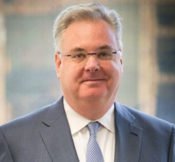
In a nine-day bench trial last August, the FTC claimed that millions of Americans were financially injured as a result of DIRECTV’s advertising efforts. The agency sought $3.95 billion in restitution.
McAtee and his team hired Tillotson and Marketos to handle the litigation. Marketos worked with McAtee at Haynes and Boone.
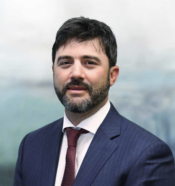
“No FTC witness testified to any false impression conveyed by a DIRECTV advertisement,” Marketos and Tillotson told the judge in a motion to have the case dismissed. “No survey or other empirical data was offered to prove a false impression conveyed by any single advertisement — let alone all of them. The FTC introduced no false statements by DIRECTV, no consumer testimony, and no evidence that customers signed up for DIRECTV as a result of misleading advertising.”
In August, U.S. District Judge Haywood Gilliam of the Northern District of California agreed. In a 45-page opinion, he ruled that the FTC “definitively failed to prove its case” that DIRECTV misled customers in tens of thousands of TV, websites and newspaper advertisements over an eight-year span. Judge Gilliam said his examination “found that the true terms are adequately and accurately disclosed in the advertisements.”
Antitrust Trial
Within days of Donald Trump being elected president, senior lawyers in the AT&T corporate legal department went to work putting together a team of superstar antitrust lawyers – including a handful of Dallas attorneys – to prepare for a potential legal battle.
The DOJ filed suit and the case went to trial in March. For six weeks, some of the nation’s best lawyers did battle. The DOJ had about 40 lawyers actively working on its side. AT&T’s team included about 70 attorneys from Gibson Dunn, O’Melveny & Myers and Cravath.
“The buck stops at McAtee’s desk. He has to answer directly to the CEO and the board if things go awry,” Kennedy says. “It’s a huge responsibility. Given the number of big time events this past year at AT&T, David really proved his worth to the company and as a GC.
“The number of lawyers in the department is staggering. It takes tremendous skill and leadership to manage the legal affairs of such a massive international company,” Kennedy says.
The pressure on McAtee was enormous, according to lawyers close to the litigation.
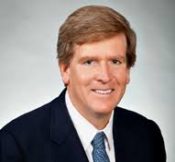
“This was an existential litigation for AT&T,” a lawyer who followed the case closely told The Texas Lawbook. “The executives, the board and shareholders were watching David’s every move and decision. The great thing is, David made great decision after great decision.”
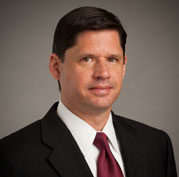
Rob Walters, who co-led the trial team, declined to comment for this article. But in June, he described AT&T’s approach as “a magnificent team effort.”
“We tried the case the old-fashioned way: We contested every fact,” he told The Texas Lawbook in June. “We challenged every witness. We won every day.”
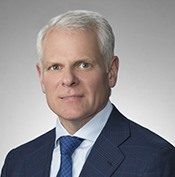
In June, U.S. District Judge Richard Leon handed AT&T a monumental victory by ruling that the DOJ failed to prove in any way that the merger was anti-competitive and that AT&T could proceed in closing its deal with Time Warner.
Diversity & Inclusion
Even as AT&T is doing battle around the globe and integrating a couple hundred lawyers from Time Warner into its ranks, the Dallas telecom giant is also a national leader in promoting diversity and inclusion in the legal profession.
To most companies, 80 lawyers in your corporate legal department would be huge. AT&T has 80 lawyers serving on its diversity and inclusion committee.
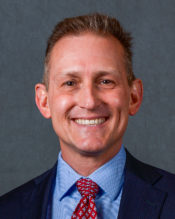
AT&T Senior Counsel Alan Dorantes, who co-chairs the legal department’s diversity committee, says D&I continues to be a daily struggle for the legal profession for multiple reasons, ranging from pipeline-related issues to a lack of understanding about the problem and innovation in trying to solve it.
“I want the AT&T legal department to align more with the corporation’s initiatives because they are doing such wonderful work, and why reinvent the wheel,” says Dorantes, an SMU Dedman Law School alum and AT&T lawyer for more than 15 years.
Dorantes points to recent surveys showing that ethic minorities have made very little progress in advancement in the legal profession.
“We need to be purposeful and thoughtful,” he says. “When something doesn’t work, try something different. Sometimes we need to shake things up.”
Dorantes says there’s a mindset in the legal community to just throw money at the problem. He points out that 50 percent of AT&T’s money committed to diversity efforts goes toward helping improve the pipeline.
“Law firms and companies need to realize that diversity is smart for business,” he says. “We need to keep talking about it, even it is frustrating and seems like very little progress has been made. It’s like going to church every once in a while. Hopefully, you will eventually get religion.”
